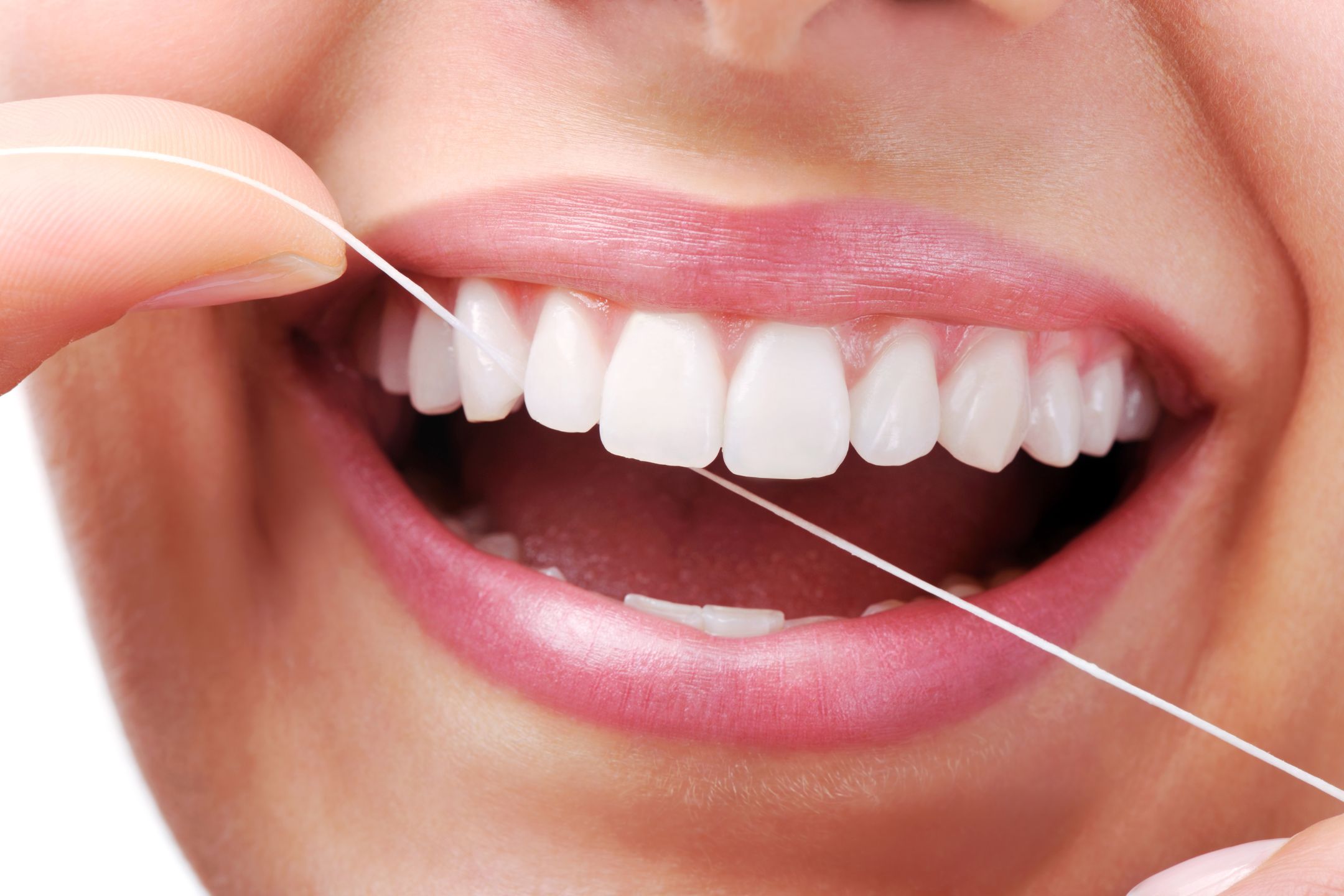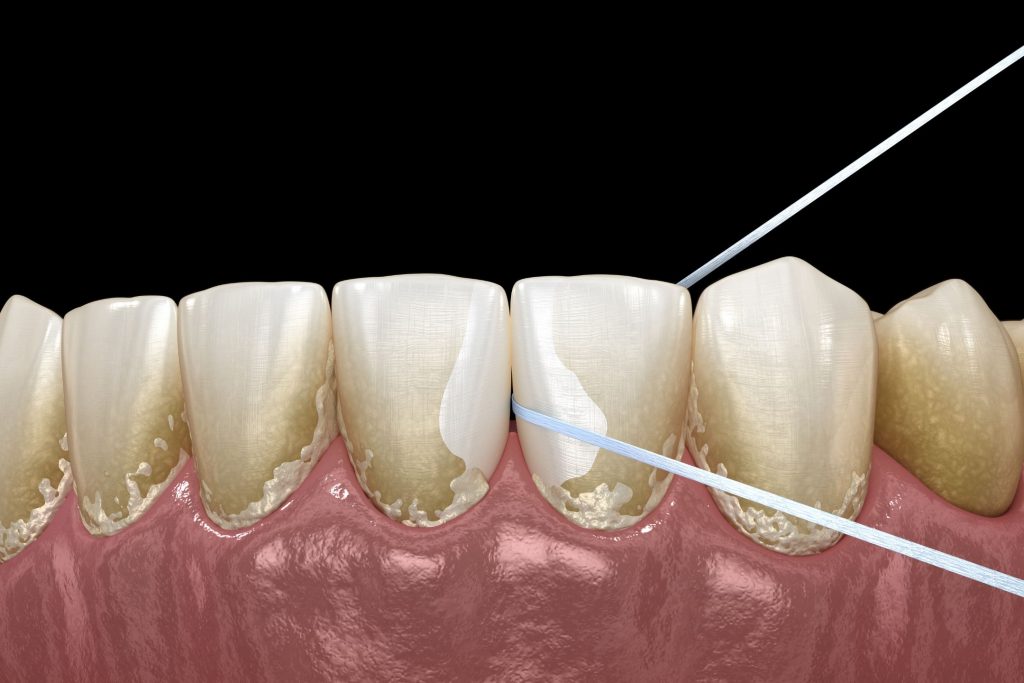Dental plaque is a thin layer of sticky substance, mostly formed by a mixture of saliva, bacteria and other microorganisms, like fungi and it deposits on the gum line, between teeth and also on their front surface as well as behind them. This can form into tartar, which then becomes more solid and also has a yellowish, sometimes brownish tint.
Tartar buildup compromises the health of the gums and also the teeth. It is associated with a number of clinical manifestations, including bad breath, receding gums and chronically inflamed gums. Tartar can also lead to a cyclic infection that ultimately results in tooth mobility and loss. While plaque-induced gingivitis is reversible with improved home care after a couple of weeks, tartar buildup is more of a “permanent” problem unless you have it professionally removed.

What can you do to prevent tartar buildup?

The best way to prevent tartar buildup is to brush your teeth at least twice a day and floss. The key is to disrupt the soft plaque on your teeth at least a couple of times a day. Since it takes 24 hours for the plaque to calcify, you need to be flossing between teeth once a day minimum. Otherwise, a thin layer of tartar will gradually build up for every day that’s missed.
Some people naturally seem to have more tartar on their teeth than others. And even if you’re brushing and flossing daily, you may still see some heavier plaque or tartar on those areas near your saliva glands.
Without professional intervention, all of that plaque and tartar is going to physically destroy the gums and bone that hold your teeth in place. Especially if you’re already seeing symptoms of gum recession, redness, or bleeding. Don’t attempt to clean tartar off yourself. If you can see the buildup or it’s been longer than six months since your last cleaning, call your dentist to schedule a checkup.
